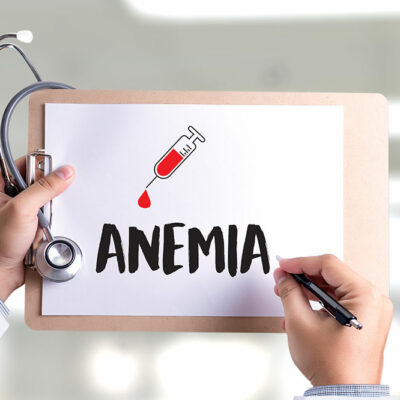
8 silent signs of high cholesterol to note
High cholesterol is a prevalent health concern affecting millions of people nationwide. While many people associate high cholesterol with visible symptoms, it often progresses silently, leading to serious cardiovascular issues. Recognizing these silent signs of high cholesterol is essential for its early detection, as it can lead to timely interventions that could potentially save lives. So, here are eight silent signs of high cholesterol that one should be aware of.
Fat deposits around the eyes (Xanthelasma)
One subtle sign of high cholesterol is the appearance of fatty deposits around the eyes that have a yellowish tinge, known as xanthelasma. These soft, raised patches can develop on or near the eyelids and are often painless. While xanthelasma itself doesn’t cause health problems, it can be an indicator of underlying high cholesterol levels. If one notices these deposits, one must consult a healthcare provider for a cholesterol check.
Gray or white rings around the cornea (Arcus Senilis)
Arcus senilis is a white or gray ring that forms around the cornea. It’s a common sign of high cholesterol and usually appears in individuals over 40. While this condition typically doesn’t affect vision, it can signal elevated cholesterol levels and should prompt a discussion with the healthcare provider.
Recurrent chest pain (Angina)
Silent chest pain, known as angina, can be an indication of high cholesterol. Angina occurs when the arteries that are responsible for supplying blood to the heart become narrowed or blocked by cholesterol plaque. This can lead to chest discomfort, often described as pressure, squeezing, or burning. While angina can be subtle, it’s crucial to recognize and seek professional attention promptly, as it can precede a heart attack.
Frequent muscle pain
High cholesterol can cause inflammation and damage to tendons and muscles, leading to pain and discomfort. Individuals with high cholesterol may experience unexplained aches or soreness in various muscle groups, such as the calves, thighs, or lower back. If one has persistent muscle or tendon pain, they must discuss it with their healthcare provider, as it could be related to their cholesterol levels.
Cognitive changes and memory issues
Studies have shown that there is a connection between high cholesterol and cognitive decline. Some individuals with elevated cholesterol levels may experience subtle changes in memory, concentration, or overall cognitive function. Monitoring cognitive health is essential, especially as one ages, and discussing any cognitive changes with a healthcare provider is advisable.
Frequent digestive problems
High cholesterol can contribute to the formation of gallstones, which can lead to digestive issues. In some cases, gallstones tend to block the flow of bile from the gallbladder to the small intestine, causing symptoms like abdominal pain, bloating, and indigestion. If someone is experiencing recurrent digestive problems, it’s worth considering a cholesterol check.
Skin lesions or lumps (Xanthomas)
Xanthomas are fatty deposits that can form under the skin, often appearing as raised, yellowish lumps or nodules. They typically develop on the elbows, knees, hands, feet, or buttocks. Xanthomas can be an external indicator of high cholesterol levels and may require treatment to address the underlying cholesterol issue.
Unexplained shortness of breath
High cholesterol can contribute to the plaque buildup in the arteries, including those that supply blood to the lungs. This can result in a reduced oxygen flow, causing unexplained shortness of breath, even during routine activities. If one finds themselves becoming breathless more easily than usual or experiencing persistent shortness of breath, it could be a subtle sign of high cholesterol impacting their cardiovascular health. It’s essential to discuss this symptom with a healthcare provider and consider a cholesterol check to assess the risk and take preventive measures.
High cholesterol is a significant health concern, and due to its silent progression, it increases the risk of heart disease and other complications. If someone experiences any of these signs, it’s crucial to consult a healthcare provider for a cholesterol check and discuss strategies to manage cholesterol levels and reduce the risk of cardiovascular diseases.


